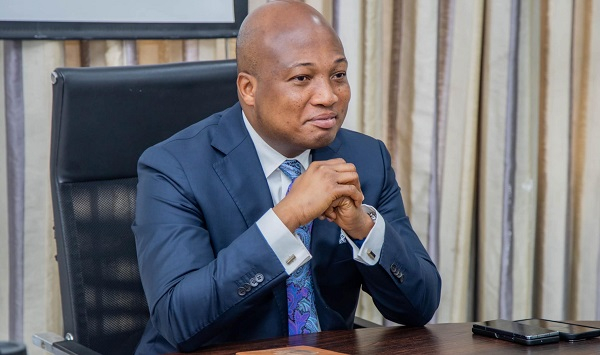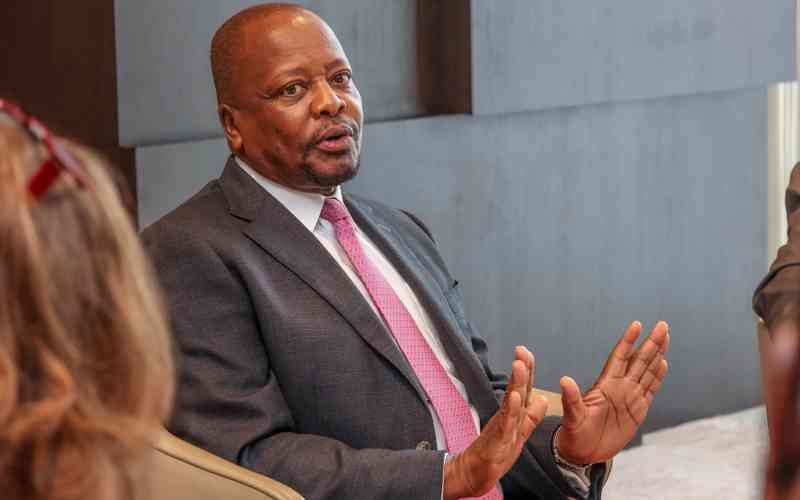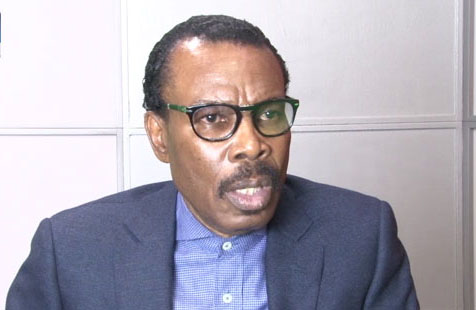Rewane justifies private sector-led road infrastructure financing
March 25, 2025 by and Ekaete Bassey

Nigeria’s road infrastructure is set for a major transformation as the government shifts from direct funding to private sector participation through the Highway Development and Management Initiative (HDMI), the Managing Director of Financial Derivatives Company Limited, Bismarck Rewane, has said.
He noted that with only 31 per cent of the country’s 195,000-kilometer road network paved, poor maintenance and inefficient transport routes have long hindered economic growth.
He said the HDMI initiative, which was launched in 2021 but could not take shape, aims to attract private investment, ensuring well-maintained roads and better connectivity.
The economist and financial expert described the HDMI as a game-changer, explaining that when roads are neglected, “potholes turn into trenches, making travel hazardous and costly.”
He revealed that with the reactivation of the initiative by the President Bola Tinubu-led administration, work would commence on some of the concessioned roads in the coming weeks.
Rewane noted that if not for bureaucratic bottlenecks, the first set of roads under the initiative would have been completed two years ago.
The Economist, speaking on Channels TV’s magazine program on Monday morning, monitored by our correspondent, emphasized that the new approach enables private companies to finance, construct, and maintain roads in exchange for toll revenue over a 25-year concession period.
According to him, private sector involvement will reduce government expenditure and ensure that roads are maintained to higher standards.
This, he said, will lead to smoother traffic flow, reduced travel times, and improved security, “The first major concession project, approved in 2021, launched recently after bureaucratic delays. Every year of delay raises costs by 20 [er cent,” he stressed.
Pointing out that the concessioned roads will now be managed more efficiently, unlike past government-led projects, Rewane added, “A well-structured toll system will lower government spending on road maintenance, allowing funds to be redirected to health and education.
“Transportation costs will decline as better roads lead to lower vehicle maintenance expenses and faster travel times”.
He pointed out that the initiative will also enhance security, with measures such as drones, Closed Circuit Television (CCTV) cameras, and highway patrol teams helping to reduce crime on major routes.
“More efficient road networks will enhance economic productivity by enabling businesses to move goods faster and more cost-effectively,” he noted.
Rewane underscored the necessity of the initiative by comparing Nigeria’s situation with other West African countries, emphasising the urgent need for reform, saying, “While the average highway speed in Nigeria is between 30 and 40 kilometers per hour, in Ivory Coast, it is nearly 55 kilometers per hour and could increase to 75 kilometers per hour with proper road infrastructure.
“These differences have a direct impact on economic output. The more efficiently goods and people move, the more competitive the economy becomes.”
Reacting to concern raised about toll fees becoming an additional financial burden for road users, the financial expert argued the opposite, insisting that improved roads will cut transportation costs, not increase them.
“For commercial transporters, a journey that takes four hours today could be reduced to one hour, allowing multiple trips per day and lowering overall expenses,” he said.
Rewane pointed out that those who prefer not to pay tolls will have access to alternative routes, even if such roads remain in poorer condition.
He also highlighted the elimination of illegal roadblocks and extortion by unauthorized agents as a key advantage of the new model.
His words: “Once a toll is paid at entry, no additional payments or stops should occur until the exit. This will improve the efficiency of road transport, particularly for businesses transporting goods across states.”
He said several highways, including Benin to Asaba, Lagos to Abeokuta, Enugu to Port Harcourt, and Sagamu to Benin, will undergo significant upgrades, adding, “Travel times on these routes will be cut by more than half. A journey that once took nine hours could now be completed in three.”
Highlighting how the improvements will enhance trade and logistics, contributing to Nigeria’s goal of becoming a trillion-dollar economy by 2030, Rewane pointed out that the economic impact will extend beyond transportation.
“Better roads will reduce post-harvest losses for farmers, lower consumer prices, and improve supply chain efficiency. This will help combat inflation and stabilize the exchange rate by boosting productivity,” he added.
Rewane highlighted poor drainage as one of the fundamental problems in Nigerian road construction, saying, “Without proper drainage, water pools on the roads, accelerating their deterioration.
“A well-structured drainage system is essential for durability,” he noted, insisting that integrating drainage into road projects should not be an afterthought but a core requirement”.
He, however, emphasised that the success of the HDMI will depend on strict oversight and public accountability, warning, “If concessioned roads are not properly maintained despite toll payments, contracts should be revoked.
“The public must actively monitor the implementation of these projects to ensure that the intended benefits are realised. Transparency in awarding contracts is crucial.
“Infrastructure projects in Nigeria have failed in the past due to favouritism and mismanagement.
For this model to succeed, concessionaires must be chosen based on technical expertise and financial competence rather than political connections.
“Most Nigerians may not realise that pension funds are being used to finance these projects. Every worker contributing to a pension scheme has a stake in the success of these roads. People must demand accountability to ensure their money is well-managed.”











